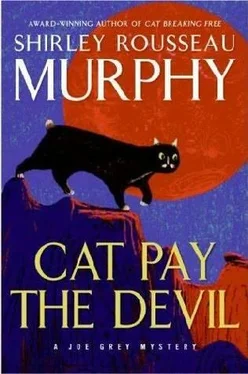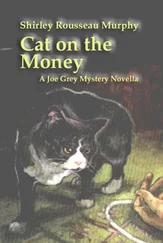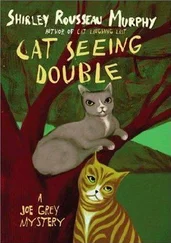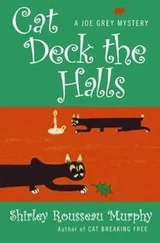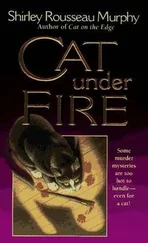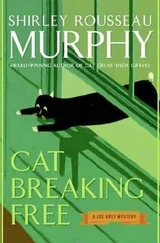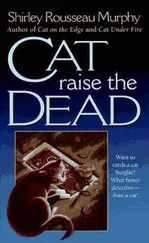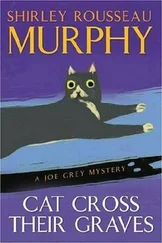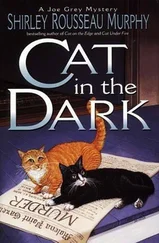“Ryan and I are on the trail above my place,” he said softly, “headed up into the hills, following the tire tracks. The snitch just called-the woman. She said it’s Cage Jones and, from her description, I’d guess Eddie Sears. Said they mean to hide Charlie at the old ruins, that she overheard them. Some overgrown trailer up there. That ring a bell?”
A negative from Dallas.
“She said it’s covered with vines. Send four units up the old road, no lights, radios off. Have them wait at the edge of the ruins, stay in their cars. No radios, no noise.”
“They’re on their way.”
When Max hung up, he called Karen. She had nothing new, she was still taking prints while waiting for her casts to dry-tire casts and three good sets of footprints, one set that she thought would be Charlie’s. “Did Rock follow you? He got out of the pasture. I’m sorry, Max. He wouldn’t come to me. I didn’t know dogs could climb-I swear I saw him do it.”
“This one can,” Max said wryly. “He’s here. Damn dog’s tracking her.” He told her about the snitch’s call and that four units were headed for the ruins. “When you finish, Karen, get on back to the station, get those prints into the works.”
Hanging up, he pushed Bucky to a slow, sure-footed lope, catching up with Ryan. She’d dismounted and was holding Rock back, to wait for Max. When she turned the dog loose he took off again, tasting the air now with even sharper excitement, his four-inch tail wagging madly, wagging the way it did when he dug out a ground squirrel. Then suddenly he stopped again, dead still, nose to the ground and snuffling hard.
Ryan slid off the mare, threw her reins to Max, and pulled Rock away so he wouldn’t destroy the new configuration of tracks. “Shoe prints,” she said softly. She praised Rock and hugged him, and she and Max studied the torn-up ground, their coats wrapped over their lights.
The Jeep had stopped there, and the prints of two men were all around its tracks, in a confused tangle. Had Charlie made a successful try, and gotten away? Max searched for her footprints, his hands sweating, his belly in a knot.
The young officer who came to evict Greeley Urzey from the seniors’ basement apartment took considerable verbal abuse in both English and Spanish. Jimmie McFarland was one of the youngest men on the force, baby faced, with soft brown hair and innocent brown eyes. Jimmie knew enough Spanish to greatly admire the grizzled old man’s vocabulary.
Greeley Urzey was not well educated, but McFarland knew he’d lived and worked most of his adult life in Panama. He’d apparently learned quickly what he needed to get along, including a nice repertoire of retorts. As Officer McFarland invited Greeley to quietly leave the premises of the seniors’ house or spend the night in jail, Greeley told him half in English and half in Spanish that he wasn’t sleeping in their jail and just what they could do with that facility.
McFarland had looked at Greeley steadily, trying not to smile. “You want a lift down the hill? It’s a motel or the jail, take your pick.” McFarland wasn’t about to leave Greeley hanging around the seniors’ place and have to come back for him. No cop likes a domestic dispute, even an apparently nonviolent one-though he didn’t much want the old man in his squad car, either; he smelled like a drunk billy goat.
“I have a car!” Greeley had snapped, snatching up his wrinkled leather duffle and heading around the house to the street, to a new, green PT Cruiser that surprised McFarland. McFarland waited for him to start the car and head down the hill, then followed him, wondering if he should run the plates, see if the car was stolen. He pulled over, making a note of the plates, and watching as Greeley swung into the parking area of the first vacant motel he came to, parked the PT Cruiser, and carried his battered old satchel through the motel’s patio and into the lobby.
After ten minutes, when Greeley did not come out, McFarland called the motel desk to make sure he’d checked in.
He had. Breathing easier, McFarland left, thinking about the beginning Spanish lessons he was taking, wondering if the advanced course would provide a more colorful approach, if it might include some of the old man’s impressive vocabulary.
McFarland had had a good day. He had, with the two detectives and Karen working the urgent missing cases, been given free reign with the village murders. He had acquired, by means he might not want to relate to the chief, enough evidence to bring in both Tucker and Keating for questioning-for visits that, he hoped, would result in arrests. As for the third murder, he was convinced that it, too, would turn out to be a domestic, though as yet they had nothing solid.
As Greeley signed the register and palmed the key to his room, up in the hills his sister, Mavity, was airing out the apartment that he had occupied. Setting down her arsenal of vacuum cleaner and dust mop, scrub mops and chemicals and buckets, she flung open windows as violently as if the wind coming up the canyon could blow away Greeley himself. Her attack of cleaning included new contact paper in all the drawers, which gave her an excuse to go through them to see if he’d forgotten anything of interest. She had already searched Greeley’s duffle, two days earlier.
That was part of what had upset her so, and made her pursue the restraining order. She had been searching his bag for his stash of whiskey, meaning to throw it out. She felt no guilt in poking around. It wasn’t her fault her brother was a drunk, but she did feel responsible for the fact that he was disturbing her friends. She hadn’t found his bottle, but she’d found something far more interesting.
In the bottom of the bag was a small white paper box, maybe two by three inches, embossed with the logo of a Panamanian jewelry store; the box was old and stained, as if perhaps it had been used for many purposes. Inside, packed carefully between layers of yellowed tissue paper, was a little gold devil. An ugly little figure with an evil leer-devil, or some other idol, one of them pagan idols from Central America. It looked like real solid gold, and it felt warm and rich like gold; it was so heavy it startled her.
But it couldn’t be real gold, the real thing would be worth thousands, maybe more. It had to be a museum copy. She remembered Greeley telling about little gold figures, ancient artifacts, he’d said. She couldn’t remember the name he called them. Did he say they were pre-Columbian? From the time before Columbus discovered South America? Didn’t seem possible anything could last that long, anything so small. Sacred trinkets, Greeley’d said, fashioned by vanished tribes. He’d been only a little drunk at the time, just enough to be in one of them showy moods when he liked to tell what he knew, and embroider on it. He said them little gold figures were in great demand, now, that even one would be worth a fortune.
With Greeley, she never knew what to believe.
She didn’t know much about history or archeology, and she didn’t remember those long-ago dates. Huacas, she thought suddenly. That was what he’d called them. The real gold huacas, Greeley said, were illegal to own, in Panama, except by the national museum. He said the museum made copies, though, and sold them to the tourists. Surely this was one of the copies. But why was it so heavy?
Greeley wasn’t above stealing, if he could get away with it, or thought he could-but Greeley couldn’t steal this kind of state-guarded treasure. If what he said was true, such a theft was far more sophisticated than anything that old man was capable of. Greeley’s thefts ran to cracking the safe of a small mom-and-pop store and making off with a few hundred dollars. Not some high-powered international operation; that wasn’t Greeley’s style, he wouldn’t know how to go about such a thing. All his talk that night, that had been whiskey talk, colorful storytelling, more than half from Greeley’s sodden imagination.
Читать дальше
